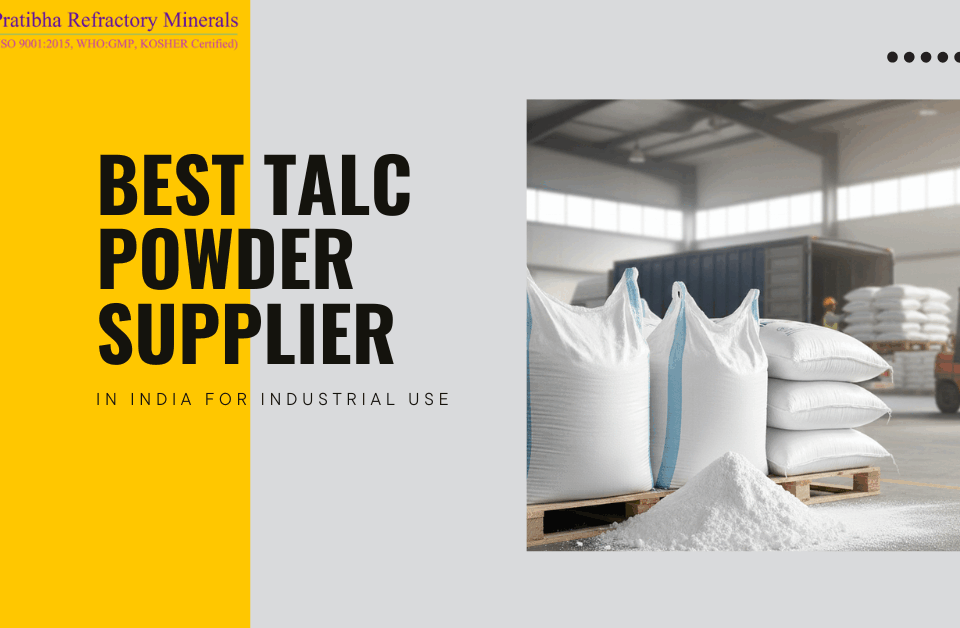- Call for Sales Enquiries

- +91-9413034047
- +91-294-2413244
- info@pratibharefractory.com
Can Kaolin be used in agriculture?

Is Dolomite safe for aquariums and gardens?
August 14, 2023
Can I mix Mica Powder with other pigments or dyes?
August 28, 2023Can Kaolin be used in agriculture?

Agriculture, the backbone of our civilization, continuously seeks innovative solutions to enhance crop yields, soil health, and overall sustainability. Amidst this quest, Kaolin, a naturally occurring clay mineral, has emerged as a promising resource with multifaceted benefits in agricultural practices. In this blog post, brought to you by a trusted Supplier of Kaolin, we will explore how this versatile mineral can be utilized to revolutionize modern agriculture.
Understanding Kaolin
Kaolin, also known as China Clay, is a soft, white clay mineral primarily composed of the mineral kaolinite. Its formation through the weathering of aluminum-rich rocks makes it a naturally abundant resource, and its unique properties have made it indispensable in various industries. However, its applications in agriculture have garnered increasing attention due to its positive impact on crop cultivation and soil management.
Key Benefits of Kaolin in Agriculture
1. Pest and Disease Management: One of the primary advantages of this mineral in agriculture is its ability to act as a natural barrier against pests and diseases. When applied as a fine powder on plant surfaces, it forms a protective white film that acts as a physical barrier, deterring insects and reducing the incidence of foliar diseases. This film also helps to moderate temperature fluctuations, creating an unfavorable environment for pests while safeguarding delicate plant tissues.
2. Sunburn Protection: Its reflective properties make it an effective tool in preventing sunburn damage to crops. By reflecting sunlight, the mineral-coated plant surfaces can reduce heat stress, particularly during scorching summers. This is especially beneficial for delicate crops like fruits and vegetables that are susceptible to sunburn and reduced yield.
3. Improved Photosynthesis: Studies have shown that the application of this natural compound can enhance photosynthesis in plants. The white film reflects excess light, optimizing light penetration into the plant canopy. This, in turn, stimulates photosynthesis, leading to improved plant growth and increased crop productivity.
4. Heat Stress Mitigation: It acts as a thermal insulator, reducing the impact of extreme temperatures on crops. During heatwaves, it helps maintain lower leaf temperatures, preventing heat-induced stress and damage. This is particularly advantageous in regions experiencing heat stress and water scarcity, where this mineral can aid in conserving water and improving crop resilience.
5. Drought Resistance: The application of this compound on plant surfaces creates a physical barrier that reduces water loss through transpiration. This can enhance drought resistance in crops and contribute to water conservation, making it a valuable tool in regions facing water scarcity and unpredictable rainfall patterns.
6. Soil Improvement: Beyond its direct benefits to plants, it also influences soil properties positively. When added to the soil, it can enhance soil structure, improve water retention, and increase nutrient availability. This promotes root development and nutrient uptake by plants, ultimately leading to healthier and more robust crops.
Application Methods
Kaolin can be applied to crops using various methods, including foliar sprays, dusting, or as part of seed treatments. Foliar sprays are popular for crops with extensive above-ground growth, while dusting is effective for smaller plants or areas where spray equipment might be impractical. Seed treatments with this mineral can enhance seed germination and early plant growth.
Conclusion
Kaolin, the versatile clay mineral, has proven its worth in transforming modern agriculture. Pratibha Refractory Minerals takes pride in contributing to the agricultural sector's growth and sustainability by manufacturing and supplying the finest quality in Kaolin. By harnessing the numerous benefits of this natural compound in pest management, sunburn protection, improved photosynthesis, and drought resistance, farmers can achieve higher crop yields and healthier plants.
Furthermore, its positive influence on soil properties enhances its significance as an agricultural resource. As we continue to strive for environmentally friendly and sustainable farming practices, the incorporation of Kaolin in agriculture stands as a testament to the invaluable role of natural resources in shaping our agricultural landscape towards a greener, more productive, and resilient agricultural future.


